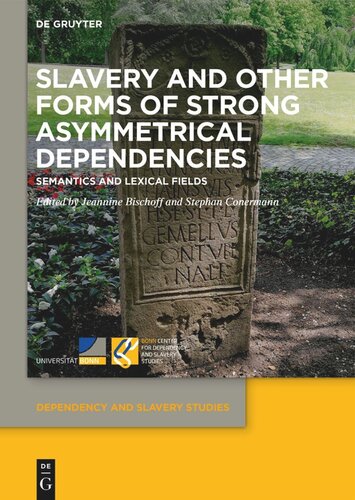

Most ebook files are in PDF format, so you can easily read them using various software such as Foxit Reader or directly on the Google Chrome browser.
Some ebook files are released by publishers in other formats such as .awz, .mobi, .epub, .fb2, etc. You may need to install specific software to read these formats on mobile/PC, such as Calibre.
Please read the tutorial at this link: https://ebookbell.com/faq
We offer FREE conversion to the popular formats you request; however, this may take some time. Therefore, right after payment, please email us, and we will try to provide the service as quickly as possible.
For some exceptional file formats or broken links (if any), please refrain from opening any disputes. Instead, email us first, and we will try to assist within a maximum of 6 hours.
EbookBell Team

5.0
70 reviewsOpen Access
In this volume, we approach the phenomenon of slavery and other types of strong asymmetrical dependencies from two methodologically and theoretically distinct perspectives: semantics and lexical fields.
Detailed analyses of key terms that are associated with the conceptualization of strong asymmetrical dependencies promise to provide new insights into the self-concept and knowledge of pre-modern societies. The majority of these key terms have not been studied from a semantic or terminological perspective so far.
Our understanding of lexical fields is based on an onomasiological approach – which linguistic items are used to refer to a concept? Which words are used to express a concept? This means that the concept is a semantic unit which is not directly accessible but may be manifested in different ways on the linguistic level. We are interested in single concepts such as ‘wisdom’ or ‘fear’, but also in more complex semantic units like ‘strong asymmetrical dependencies’.
In our volume, we bring together and compare case studies from very different social orders and normative perspectives. Our examples range from Ancient China and Egypt over Greek and Maya societies to Early Modern Russia, the Ottoman Empire and Islamic and Roman law.